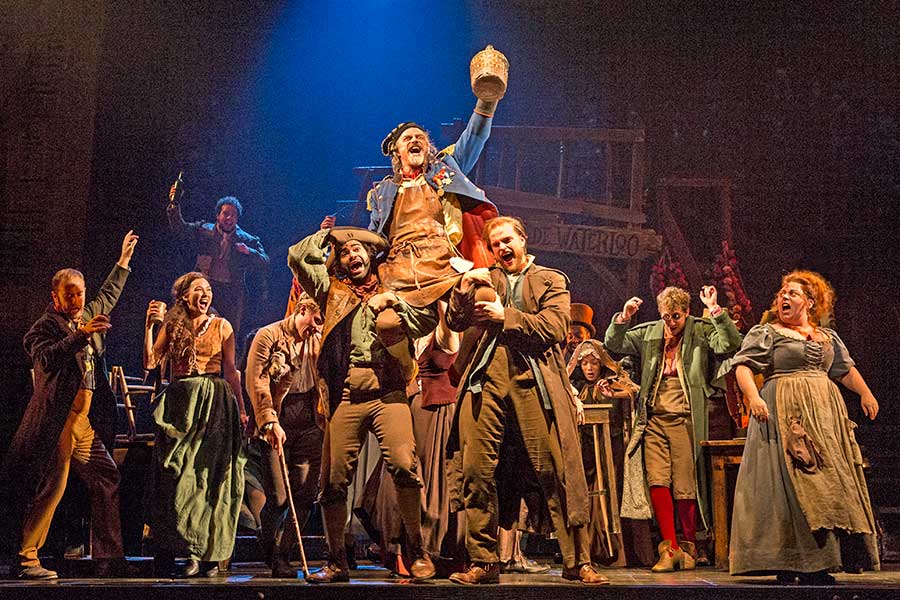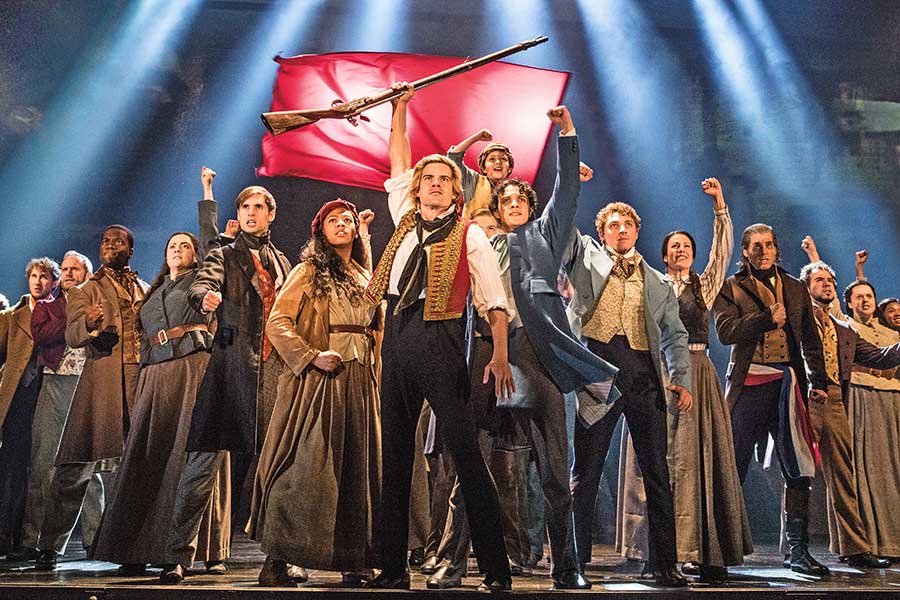
If you need a little revolution to brighten up your new year, you are in luck.
No, not that one. For whatever reason, that ball still hasn’t gotten rolling yet.
(Tick-tock.)
But in the meantime, you can always keep hope alive with the return of “Les Misérables,” a new production of the Tony Award-winning musical about broken dreams and unrequited love, sacrifice, redemption and triumph of the human spirit, set during the revolutionary period of 19th-century France.
Out actors and ensemble cast members Andrew Love and John Ambrosino both play multiple roles in the show. Love regularly portrays the Bishop of Digne and sometimes plays Police Inspector Javert, who doggedly hunts down the central character, Jean Valjean, throughout the play.
“I play 17 or 18 other characters throughout the show, but the bishop is a fun little feature part that I love doing,” Love said. “It’s one of my favorite parts of the show. But on the nights I get bumped up to play Javert, it’s just such a fun change of pace for me just because we do the show a lot and it’s fun to switch it up. There are many ways to play Javert but I play him not as a villain or antagonist, but as a passionate man who is just blind. He doesn’t know he’s blind, but he believes what he believes without rethinking anything in his life because that’s how he’s survived. And in the end, he ended up being wrong about it.”
“We are seriously out there for most of the show,” Ambrosino said about the “Les Mis” cast. “That group of 25 of us — who are doing the ensemble — have became an immediate family. The specific roles that we get to do are exciting for each of us because they’re just little moments where we get to shine and go into our craft and find something different and exciting and display these small characters to the audience.
“Being able to do all those different characters not only is exciting from a physical standpoint of moving around and being with a group of people and coming forward, but also as an actor being able to tell these small arcs of a character quickly so that you can follow the main character’s plot.”
Given the themes that “Les Misérables” incorporates in its story, one could guess that the show resonates with American audiences in these strange and turbulent political times. Both Love and Ambrosino said that while that might be the case, the show does have a timeless appeal to its enthusiastic fan base.
“People come because it’s beloved and it’s been around for so long that there’s some nostalgia to it,” Love said. “But my hope is that when people come to see it, they see the parallels, especially because right now we’re touring in Washington, D.C., and that’s always on my mind when we’re in that show, not just revolution but a small group of people standing up for what they believe in.”
“It’s a dream come true to do this show every night if you are a musical-theater actor,”
Ambrosino added. “It’s such a phenomenon, the audience and the fans are ecstatic. It’s really wonderful. This story is universal in so many ways. I think whenever you experience live theater or some sort of narrative and you exist in a specific cultural or time period, it’s hard to not also bring into the theater what you experience day to day. Is it that they choose to come because of the issues? I’m not sure. But I think the way that they view it will always change based on how the audience is experiencing the world around them.”
Broadway Philadelphia presents “Les Misérables” Jan. 9-21 at the Kimmel’s Academy of Music, 250 S. Broad St. For more information or tickets, call 215-790-5800 or visit www.kimmelcenter.org.

